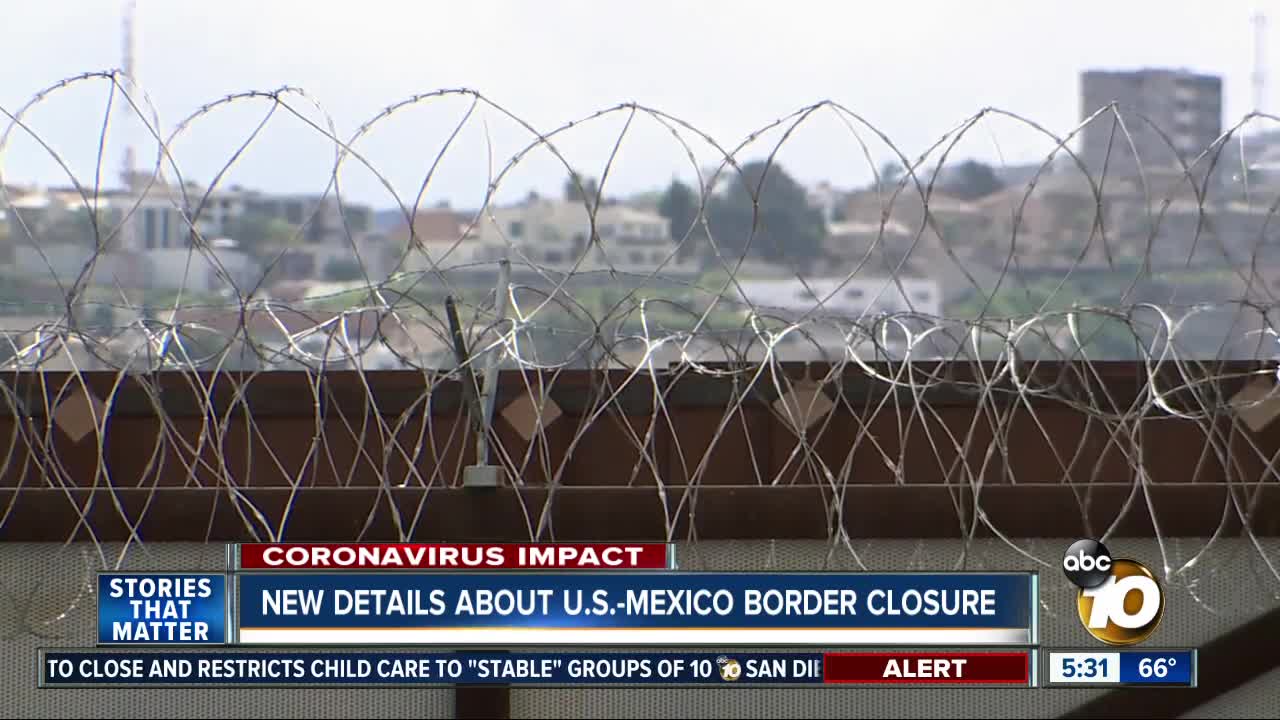SAN DIEGO (KGTV) - Border agents have seen a huge drop in traffic along the San Diego Sector ports of entry since the Trump Administration restricted all non-essential travel at the U.S.-Mexico border last Friday.
In a conference call with reporters on Monday morning, U.S. Customs and Border Protection (CBP) revealed new details about its plan to handle the implications of the restrictions on the migrant population and the cross-border worker population.
Recent tweets posted by CBP showed empty ports of entry. “We have seen about a 70% decrease on average at all our ports of entry,” said a CBP spokesperson during Monday’s conference call. That plunge in foot and vehicle traffic comes after the border restrictions took effect on Saturday.
CBP said Monday that the restrictions don't apply to U.S. citizens, legal permanent residents or those traveling for medical, work or educational purposes.
The agency reports that people’s work verification or documentation is currently on a sort of “honor system”. “At this point in time, we are not formally asking for verification or employment ID,” said a spokesperson on Monday.
A spokesperson also reaffirmed that most apprehended migrants will be returned immediately, adding in part, “Individuals are no longer being held in detention areas.
Quick interviews will be conducted in the field. Basic biographic scans run in the field as well. Then the individual will be [taken] back to the border and expelled to the country they came from.”
There's now at least a 48-hour suspension on migrants crossing for court hearings, said a CBP spokesperson, who added that all new asylum seekers will be reviewed independently. “We're taking each case, case by case, depending on what the claim is, the nationality and the country from which they come from,” he added.
“I'm particularly concerned about the asylum migrancy [population],” said Rafael Fernández de Castro, a U.S.-Mexico relations expert at UC San Diego. “In the shelters in Tijuana, sometimes there's 15, 20 [or even] 40 people sleeping in a room. That's basically a horrible story because that's a way to get a lot of migrants contaminated with coronavirus,” he added in his interview with 10News.
CBP also reported that it’s making sure its officers have the necessary personal protective equipment like masks and gloves.




